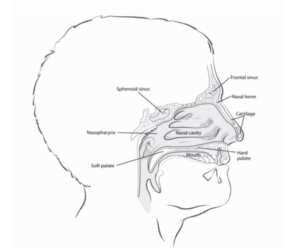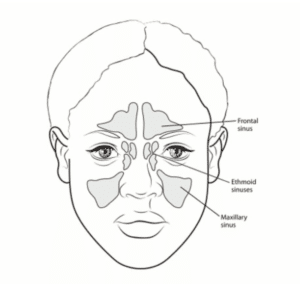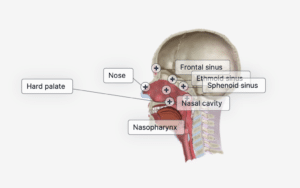Nasal Cancer Surgery: Types, Procedures, and Recovery
Nasal cancer surgery is performed for nasal cancer which is a rare type of cancer that affects the nasal cavity and paranasal sinuses. It is usually treated with a combination of surgery, radiation therapy, and chemotherapy. In this article, we will focus on nasal cancer surgery, its types, procedures, and recovery.
Types of Nasal Cancer Surgery

It is usually treated with a combination of surgery, radiation therapy, and chemotherapy. In this article, we will focus on nasal cancer surgery, its types, procedures, and recovery.
The type of nasal cancer surgery depends on the location, size, and stage of the cancer. The most common types of nasal cancer surgery are:
- Endoscopic surgery: This type of surgery is used to remove small tumors that are located near the opening of the nasal cavity. The surgeon inserts an endoscope, a thin tube with a camera and a light, into the nose and uses small instruments to remove the tumor.
Endoscopic surgery is minimally invasive and has a shorter recovery time compared to other types of nasal cancer surgery. It is often used for early-stage nasal cancer or for removing residual tumor after radiation therapy.
- Maxillectomy: This surgery is used to remove tumors that have spread to the maxillary sinus, the bone that forms the roof of the mouth. The surgeon removes the bone and the tumor, and may also remove the eye or part of the palate.
Maxillectomy is a more invasive surgery that requires a longer recovery time compared to endoscopic surgery. It is often used for advanced-stage nasal cancer or for tumors that have not responded to radiation therapy.
- Rhinectomy: This surgery is used to remove the entire nose or part of it. It is usually performed when the cancer has spread to the nasal bones or the cartilage.
Rhinectomy is the most invasive type of nasal cancer surgery and requires a longer recovery time compared to other types of surgery. It is often used as a last resort when other treatments have failed.
- Craniofacial resection: This surgery is used to remove tumors that have spread to the base of the skull. The surgeon removes the tumor and the affected bone, and may also remove the eye, part of the palate, or part of the brain.
Craniofacial resection is a complex surgery that requires a longer recovery time compared to other types of nasal cancer surgery. It is often used for advanced-stage nasal cancer or for tumors that have not responded to other treatments.
Procedures for Nasal Cancer Surgery

Before nasal cancer surgery, the patient is usually given general anesthesia to ensure that they are unconscious and do not feel any pain during the surgery. The surgery may be performed as an outpatient procedure or may require a hospital stay, depending on the type and extent of the surgery.
During the surgery, the surgeon makes incisions in the nasal cavity or the face to access the tumor. They may also use imaging techniques such as CT or MRI scans to guide the surgery and ensure that all of the cancerous tissue is removed.
After the tumor is removed, the surgeon may use reconstructive techniques to restore the appearance and function of the nose and other affected areas. This may include using tissue from other parts of the body, such as the thigh or the abdomen, or using synthetic materials such as silicone or titanium.
Recovery from Nasal Cancer Surgery
After nasal cancer surgery, the patient will need to rest and recover for several weeks. They may experience pain, swelling, and bruising around the surgical site, and may need to take pain medication or other medications to manage these symptoms.
The patient may also need to follow a special diet or avoid certain activities for a period of time after the surgery. The surgeon will provide specific instructions on how to care for the surgical site and what to expect during the recovery period.
In some cases, the patient may need to undergo additional treatments such as radiation therapy or chemotherapy to ensure that all of the cancerous cells have been destroyed.
In addition, the patient may need to undergo physical therapy or speech therapy to regain function and mobility in the affected areas. The length of the recovery period varies depending on the type and extent of the surgery, as well as the overall health of the patient.
It is important for the patient to attend follow-up appointments with their healthcare team to monitor their recovery and ensure that the cancer has not returned. Regular check-ups, imaging tests, and blood tests may be necessary to detect any signs of recurrence.
Conclusion

Nasal cancer surgery is a complex procedure that requires careful planning and expertise. The type of surgery depends on the location, size, and stage of the cancer, as well as the overall health of the patient. Endoscopic surgery is a minimally invasive option for early-stage nasal cancer, while more invasive surgeries such as rhinectomy and craniofacial resection may be necessary for advanced-stage cancer.
After surgery, the patient will need to rest and recover for several weeks and may need additional treatments such as radiation therapy or chemotherapy. Physical therapy or speech therapy may also be necessary to regain function and mobility. It is important for the patient to attend follow-up appointments to monitor their recovery and ensure that the cancer has not returned.
If you or a loved one is facing nasal cancer surgery, it is important to discuss all of the available treatment options with your healthcare team and to ask any questions or express any concerns you may have. Your healthcare team can provide you with information about the risks and benefits of each type of surgery and help you make an informed decision about your treatment plan.
In addition, it is important to maintain a healthy lifestyle and follow any instructions provided by your healthcare team to optimize your recovery and reduce the risk of complications. This may include eating a healthy diet, getting regular exercise, avoiding smoking and alcohol, and taking any prescribed medications as directed.
Finally, it is important to seek support from family, friends, or a mental health professional to cope with the emotional and psychological impact of a cancer diagnosis and treatment. Many cancer centers offer support groups or counseling services for patients and their families.
Nasal cancer surgery can be a challenging experience, but with the right treatment plan and support, many patients are able to recover and resume their daily activities. If you have any concerns or questions about nasal cancer surgery, talk to your healthcare team to get the information and support you need.
Endoscopic surgery: This is a minimally invasive surgical technique used to remove small tumors in the nasal cavity. The surgeon inserts an endoscope, a thin tube with a camera and light, into the nose to visualize the tumor and surrounding tissue. The surgeon then uses small surgical instruments to remove the tumor while avoiding damage to nearby healthy tissue. Endoscopic surgery is a preferred method for treating early-stage nasal cancer because it is less invasive and has a shorter recovery time compared to other types of nasal cancer surgery.
Maxillectomy: This is a surgical procedure used to remove tumors that have spread to the maxillary sinus, the bone that forms the roof of the mouth. Depending on the size and extent of the tumor, the surgeon may remove the entire maxilla or just a portion of it. In some cases, the surgeon may also remove the eye or part of the palate. Maxillectomy is a more invasive surgery compared to endoscopic surgery and may require a longer recovery time.
Rhinectomy: This is a surgical procedure that involves the removal of all or part of the nose. Rhinectomy is usually performed when the cancer has spread to the nasal bones or the cartilage. Depending on the extent of the cancer, the surgeon may remove only a portion of the nose or the entire nose. Rhinectomy is the most invasive type of nasal cancer surgery and requires a longer recovery time compared to other types of surgery.
Craniofacial resection: This is a complex surgical procedure used to remove tumors that have spread to the base of the skull and/or the brain. The surgeon removes the tumor along with the surrounding bone and tissue, which may include part of the eye, the palate, or part of the brain. Craniofacial resection is a highly specialized surgery that requires expertise in both neurosurgery and head and neck surgery. Recovery from this type of surgery is longer and more complex compared to other types of nasal cancer surgery.
Recovery from nasal cancer surgery: The recovery period after nasal cancer surgery is a crucial time during which patients need to rest, follow specific instructions, and attend follow-up appointments with their healthcare team. Recovery time depends on the type and extent of the surgery, as well as the overall health of the patient. After surgery, patients may experience pain, swelling, and bruising around the surgical site. They may need to take pain medication or other medications to manage these symptoms. Depending on the extent of the surgery, patients may also need to undergo physical therapy or speech therapy to regain function and mobility.
Nasal cancer treatment: The treatment of nasal cancer may include surgery, radiation therapy, and chemotherapy, either alone or in combination. The type of treatment depends on the location, size, and stage of the cancer, as well as the overall health of the patient. Surgery may be the primary treatment for early-stage nasal cancer, while radiation therapy and chemotherapy may be used to treat more advanced-stage cancer or to reduce the risk of recurrence after surgery.
Nasal cavity cancer: This is a type of cancer that occurs in the nasal cavity, which is the space behind the nose and above the roof of the mouth. Nasal cavity cancer is rare and may not cause symptoms in its early stages. Symptoms may include nasal congestion, nosebleeds, facial pain or numbness, and difficulty breathing.
Paranasal sinus cancer: This is a type of cancer that occurs in the paranasal sinuses, which are air-filled spaces in the bones of the face that are connected to the nasal cavity. Paranasal sinus cancer is also rare and may not cause symptoms in its early stages. Symptoms may include nasal congestion, nosebleeds, facial pain or pressure, swelling around the eyes or cheeks, and vision changes.
In summary, nasal cancer surgery is a complex and highly specialized procedure that may involve various types of surgery depending on the location, size, and stage of the cancer. The recovery period after nasal cancer surgery is crucial for patients to rest and recover while following specific instructions provided by their healthcare team. Treatment of nasal cancer may include surgery, radiation therapy, and chemotherapy, either alone or in combination. Nasal cavity cancer and paranasal sinus cancer are rare types of cancer that may cause symptoms such as nasal congestion, nosebleeds, and facial pain.
